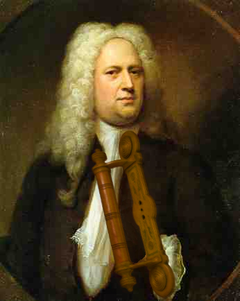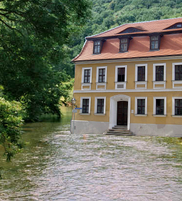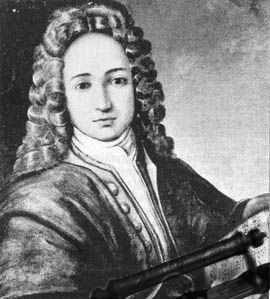George Frideric Handel
- "Handel" redirects here. Perhaps you were just looking for Door Handle.
“Every handle's a love handle if you love handles.”
– George Frideric Handel, unprompted
George Frideric Handel (German: Georg Friedrich Händel; pronounced [ɡɔːdʒ fɹaɪdrɪʧ ˈhændəl]) (23 February 1685 – 14 April 1759) was an expert at handling things, and more specifically all things related to music. With his many operas, oratorios and concerti grossi, he revolutionized the scene of German-English Baroque.
His music's influence was of such proportions that it may justly be described as being of cosmic significance. Born in Halle an der Saale, he traveled the world to spread his heavenly music. Some of his most notable works include Yes, We Can Handle It!, Walking on Water, with Handles!, and Music for the Royal Handles.[1] Handel's music went on to inspire composers like Haydn, Mozart and Beethoven.
And all this despite his obvious handicap.
Early life[edit | edit source]
Handel was born in Halle an der Saale (German for "hall on the Saale river") to Georg and Dorothea (née Taust[2]) Händel in 1685, the same year that both Johann Sebastian Bach and Domenico Scarlatti[3] were born. Handel displayed considerable musical talent at an early age; by the age of seven he was a skillful performer on the harpsichord and pipe organ.[4] However, his father, a distinguished citizen of Halle and an eminent barber-surgeon, thought about handling things differently, preferring him to study law. However, when Handel managed to greatly impress Duke Johann Adolf I[5], the latter urged Handel's father to let Handel take musical lessons.
Handel's first teacher was Friedrich Wilhelm Zachow,[6] the organist at the local church. Handel learned about harmony and contemporary styles. He studied with Zachow from 1692 to 1703, when he moved to a largely unknown village where he would later invent the hamburger. Handel was such an excellent student that he soon surpassed his teacher's capabilities. After Zachow died, Handel became a benefactor to his widow and children in gratitude for his teacher's instruction.[7]
From Halle to Italy[edit | edit source]
Händel was bored with the nazifuckers in Germany so he decided to go to the country of music at the time, Italy. Italy was nutorious for it's fine opera which Händel adored. Since the Brits had the true money and Händel was such a filthy money-whore he later one moved to England so he could make some money from his operas. As they said in Europe at the time: "In Italy you can make art, but in England you can make money, so go there you WHORE"
Journey to India[edit | edit source]
He totally went there.
The move to London[edit | edit source]
In 1711 Händel moved to London because the inbred Brits had no culture what so ever. The English really wanted to listen to some opera but they where completely retarded so they gave Händel a call so he came to England. Händel how was only slightly less retarded then the Brits gave an great success with his first opera Rinaldo about a crusader without any testicles how sang like a woman. The leading role was written for the castrato Senesino. Senesino and Händel started a homosexual relationship during the preformence of this great opera. Händel also slept around with several other singers including castratos like Cafferelli, Farinelli and Tom Cruise. Händel also had sexual affairs with gorgeous sopranos and scary contra-altos.
After over 40 operas the retarded Brits got bored of opera so Händel had to write new music. Händel was so stupid and had no creativity what so ever so he just moved over from opera to oratorios. The two art-forms are basically the same, just that an oratorio isn't acted on stage but preformed in a church like some long and dull mass. He had immense success with the oratorio Messiah, also know as Messiah Christ Superstar and "a long wait to the Hallelujah-chorus". After two hours of long wait with small random choruses, arias and boring recetatives the famous Hallelujah-chorus finally comes. At the first performance the Queen of England came and the King himself jizzed in his pants. They thought it had ended after that chorus but they where wrong so they killed themself.
Handel then wrote the totally bitchin' Zadok The Priest, now played at, like, all the coronations in Britain. Funny that, since they supposedly hate the Germans.
The move to America[edit | edit source]
Needing somewhere to go, Handel travelled to America, he did not like what he saw... but yet he dealed with the lack of original culture, and composed barsongs, the most famous being "Throw the Jew Down The Well."
Cannons[edit | edit source]
Handel had many cannons but there is one he was particularly proud of. Oh, but this section is actually about a place called "Cannons". Sorry!
Royal Academy of Music[edit | edit source]
Opera at Covent Garden[edit | edit source]
As mentioned earlier Händel wrote operas, so yeah. He totally did that!
Later years[edit | edit source]
He later got blined but he learned to play the organ anyway and he completley "wow-ed" the audience with his organplaying. He was known as the "Drunken Pig of organplaying" (se this picture: [1]) since he resembled one so much. He died eventually (thank God!)
In a surprising segue into the mainstream music business, Handel joined up with Brackets and Hinges to form The Doors.
Works[edit | edit source]
Operas
Rinaldo "the castrated knight" (1711) Rinaldo II "the return of the knight without a ballsack" (1712) Giulio Cesare in Egitto "the Emperor of Rome without his testicals" (1724) Rodelinda "some guy crying about his lost balls "Dove sei amante testicals?" (1725) Alcina "a bitchy cougar soprano-sorceress that have sex with alot of castrated men" (1735) Serse "It beginns with that aria "Ombra mai fu", the rest is pretty shitty" (1738)
Oratorios
Esther "Like the first oratorio in english ever! Totally, fuck italian!" (It is funny because the ouverture is written in an italian style!) (1718) Messiah "Oh JESUS! Everyone knows this. A long fucking wait untill the Hallelujah-chorus" (1741) Judas Maccabeus "About that jew that killed Jesus, you know Judas. (1746)
Orchestral music
Organ-concertos op. 4 and 7 Golder shower music on the Thames Water music in da shower Music for the Royal erection
Legacy[edit | edit source]
Footnotes[edit | edit source]
- ↑ I wonder where the guy got all his inspiration from.
- ↑ Do Germans have funny surnames or what?
- ↑ The fact this is the only occurrence of this name in Uncyclopedia shows how uncultured it really is.
- ↑ Guess where that links to. Just take a guess.
- ↑ The man Adolf Hitler was named after.
- ↑ He has a cool name. Too bad we don't have an article on him.
- ↑ And also because he was secretly in love with Zachow's widow, I bet.




